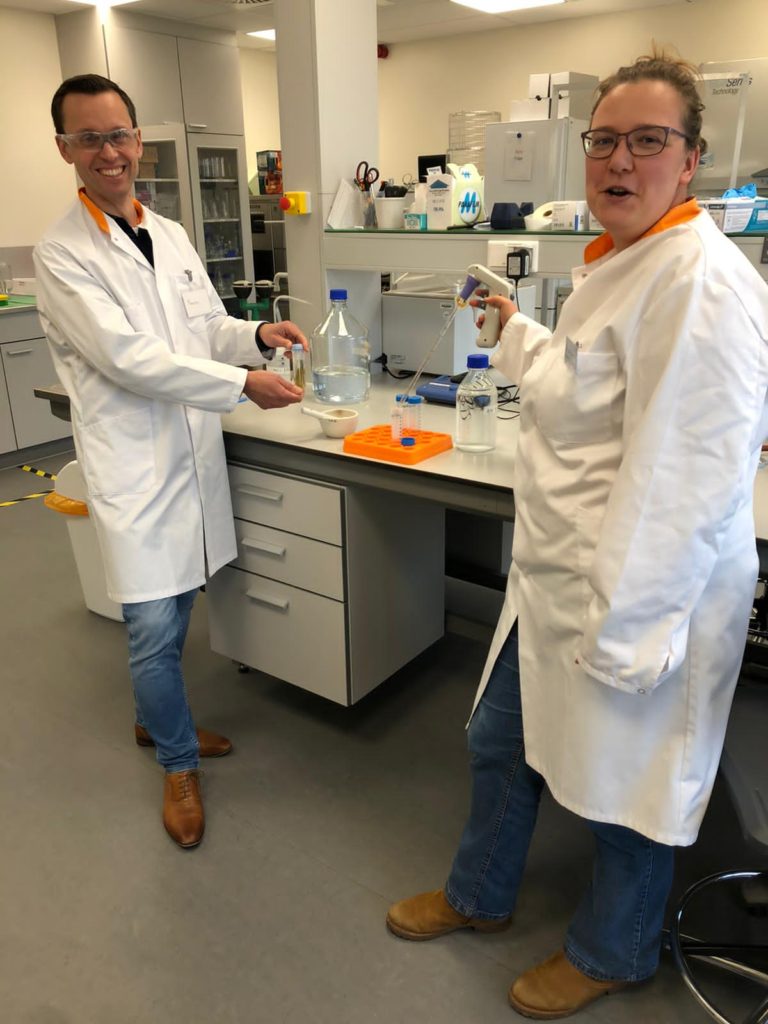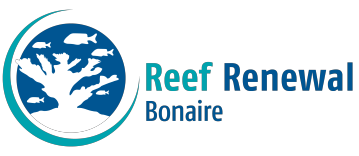The coral-associated microbiome: potential for a probiotic?
Coral reefs worldwide are under threat. Over the last 30–50 years there has been a huge decline of the world’s tropical corals. Global warming, pollution, overfishing and other types of stresses have all contributed to a decrease in health and survival of coral reefs. In order to counter their decline, strategies should be adopted that increase the resilience of corals.
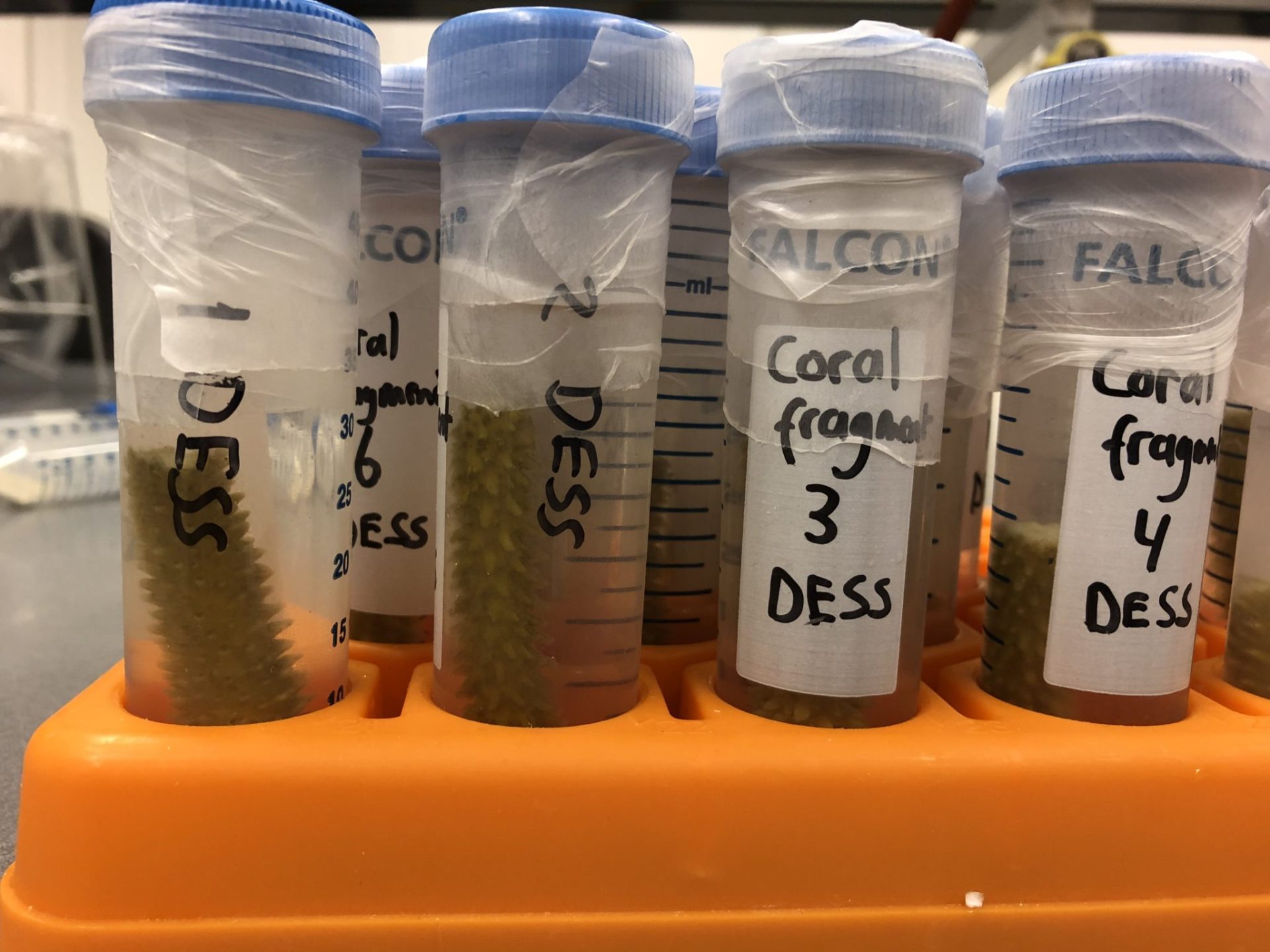
In the last few years, it has become increasingly clear that microorganisms which are associated with corals play an important role in their health and resilience. This is highly similar to the situation in other organisms, such as humans, in which the composition of the associated microorganisms, often called the microbiome, plays an important role in health and disease. Hence, a promising approach to increase coral resilience may be to manipulate the coral-associate microbiome by applying carefully constructed mixtures of beneficial microorganisms as ‘probiotics’ (Peixoto et al. 2017).
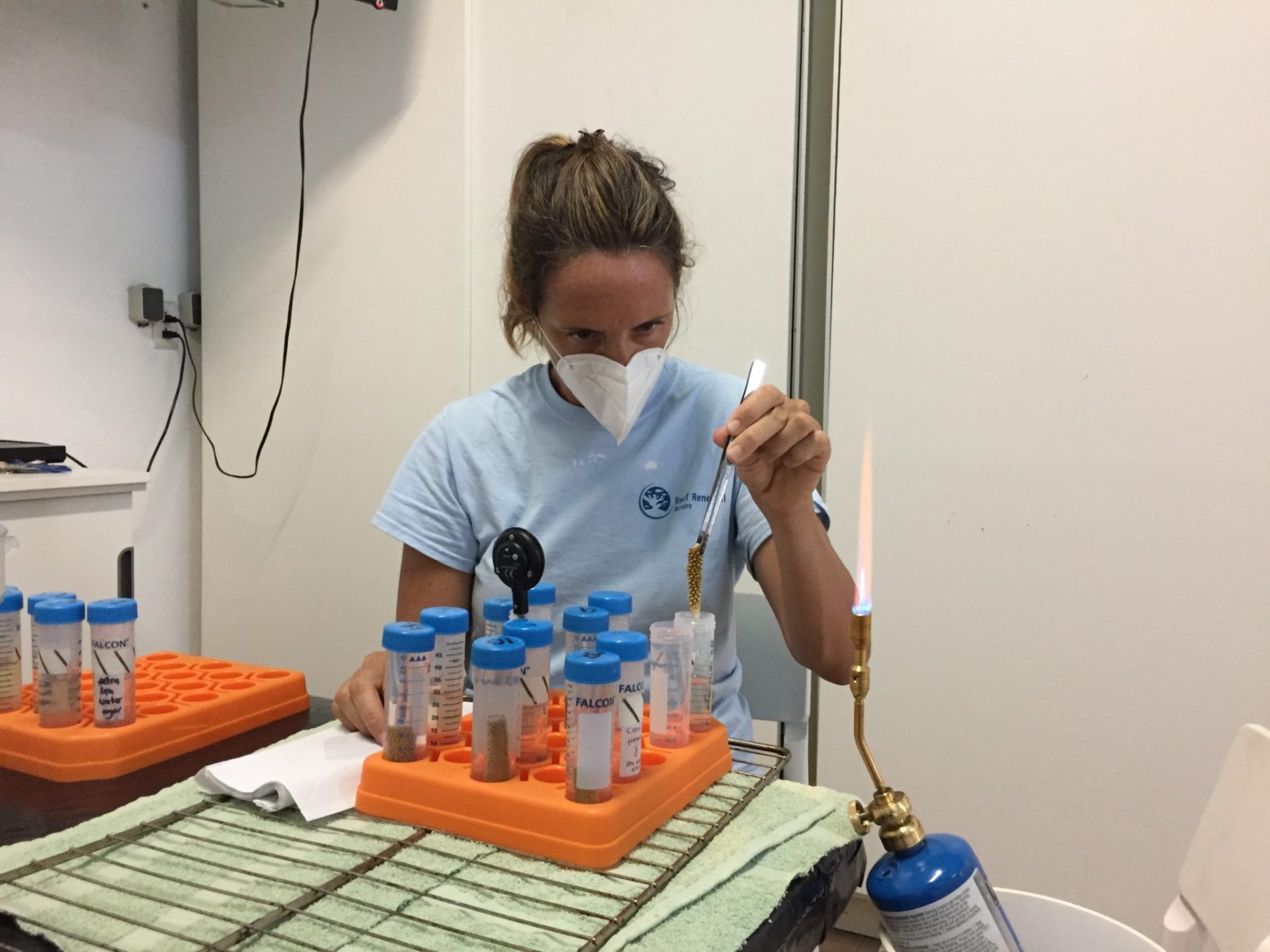
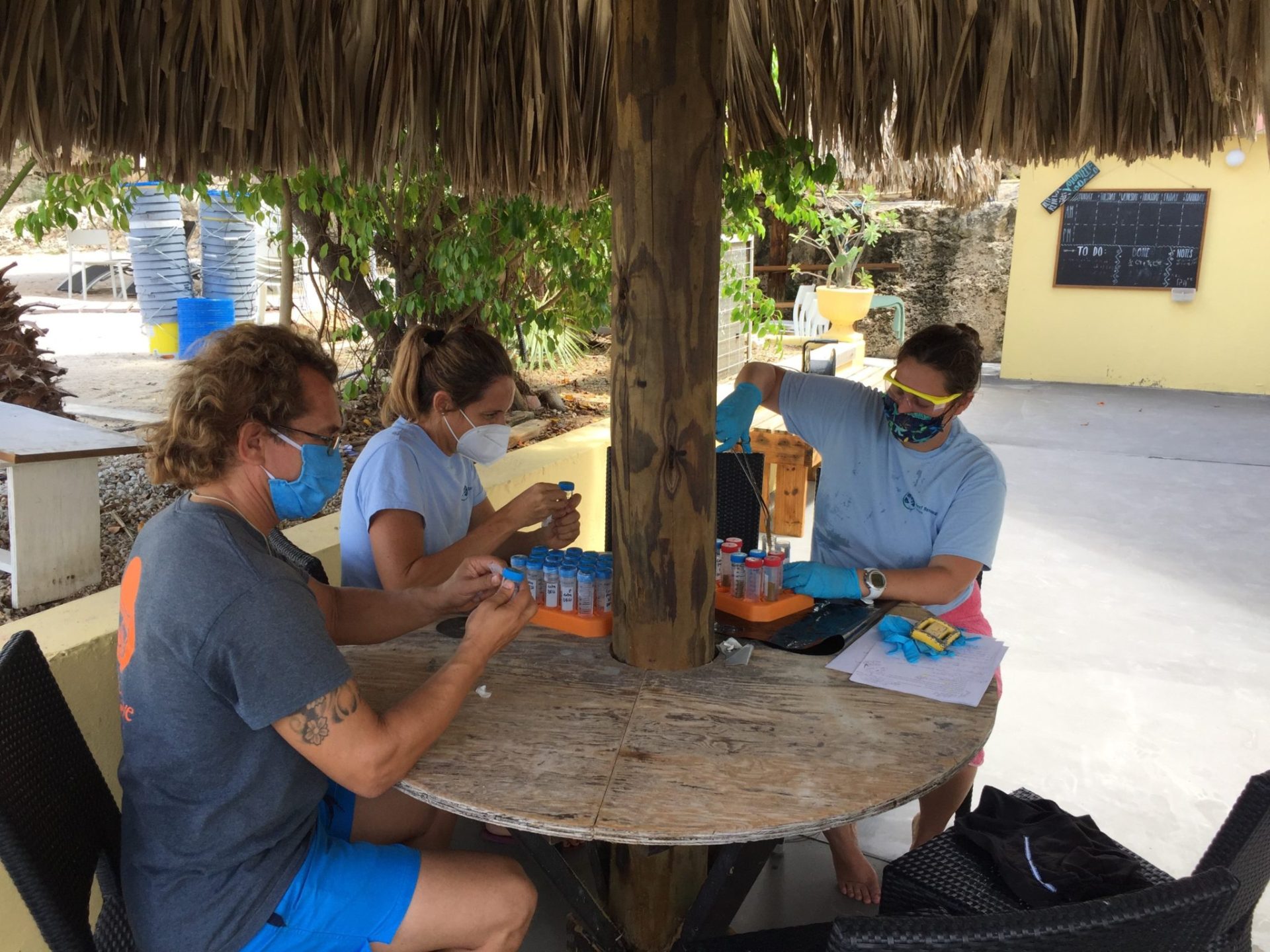
At present, the composition of the microbiome in nursery-reared and outplanted Acropora corals on Bonaire is unknown. The aim of the current project is to identify and isolate naturally occurring beneficial bacteria that may stimulate the resilience of these corals. In the future, a selection of these beneficial bacteria can be applied to the Acropora corals to increase their resilience against environmental disturbances.
In order to identify beneficial microorganisms, we will use a metagenomics approach. This means that we will analyze all the bacterial DNA that is present in the corals and search for bacteria carrying functionally beneficial genes. Once these bacteria have been identified, we will try to culture them from the coral samples in which they were identified.
Unfortunately, COVID-19 has posed a challenge to collect and process the coral samples on Bonaire and transport them to our laboratory in The Netherlands. However, Francesca and her team did great work and managed to process and send the samples to our laboratory. So at this point, we have been able to start working on the optimization of the DNA isolation step that is preceding the metagenomics analysis.
Written by: Maarten Morsink, PhD
morsink.m@hsleiden.nl
Lecturer / researcher in molecular biology Leiden Centre for Applied Bioscience:
University of Applied Sciences Leiden, The Netherlands
Reference
Peixoto RS, Rosado PM, Leite DCA, Rosado AS and Bourne DG (2017) Beneficial Microorganisms for Corals (BMC): Proposed Mechanisms for Coral Health and Resilience. Front. Microbiol. 8:341. doi: 10.3389/fmicb.2017.00341
